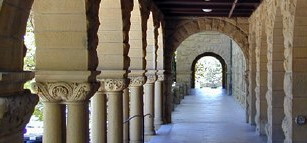Dealing with Kazakhstan’s Soviet nuclear legacy
Science Seminar
Date and Time
October 15, 2012
12:00 PM - 1:30 PM
Open to the public
No RSVP required
Speaker
Siegfried S. Hecker - Co-Director at Center for International Security and Cooperation
When the Soviet Union dissolved at the end of 1991, the independent Republic of Kazakhstan was left with the world’s fourth largest nuclear arsenal and a huge nuclear infrastructure, including lots of fissile materials, several nuclear reactors, the Ulba Metallurgical Plant, and the enormous Semipalatinsk Nuclear Test Site. The return of the nuclear weapons to Russia (thanks to former Secretary of Defense William Perry), the transport of vulnerable highly-enriched uranium to the U.S. (Project Sapphire), the disposition of the fast reactor fuel, and upgrading of security and safeguards at its research reactors have been the subject of numerous reports. The story of what has been done with what the Soviets left behind at the test site and the dangers it presented will be the main topic of my presentation. It is a great story of how scientists from three countries worked together effectively among themselves and with their governments to deal with one of the greatest nuclear dangers in the post-Cold War era.
About the speaker: Siegfried S. Hecker is co-director of the Stanford University Center for International Security and Cooperation, Senior Fellow of the Freeman Spogli Institute for International Studies, and Professor (Research) in the Department of Management Science and Engineering. He also served as Director of the Los Alamos National Laboratory from 1986-1997. Dr. Hecker’s research interests include plutonium science, nuclear weapon policy and international security, nuclear security (including nonproliferation and counter terrorism), and cooperative nuclear threat reduction. Over the past 20 years, he has fostered cooperation with the Russian nuclear laboratories to secure and safeguard the vast stockpile of ex-Soviet fissile materials. His current interests include the challenges of nuclear India, Pakistan, North Korea, the nuclear aspirations of Iran and the peaceful spread of nuclear energy in Central Asia and South Korea. Dr. Hecker has visited North Korea seven times since 2004, reporting back to U.S. government officials on North Korea’s nuclear progress and testifying in front of the U.S. Congress. He is a fellow of numerous professional societies and received the Presidential Enrico Fermi Award.
Location
CISAC Conference Room
Encina Hall Central, 2nd floor
616 Serra St.
Stanford University
Stanford, CA 94305
» Directions/Map
Parent Research Projects
Topics: Energy | International Security and Defense | Nuclear energy | Nuclear safety and security | Terrorism | Terrorism and counterterrorism | India | Iran | Kazakhstan | North Korea | Pakistan | Russia | South Korea



 About CISAC
About CISAC
 Mailing List
Mailing List @StanfordCISAC
@StanfordCISAC Facebook
Facebook